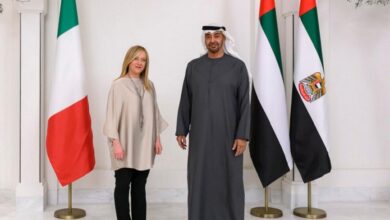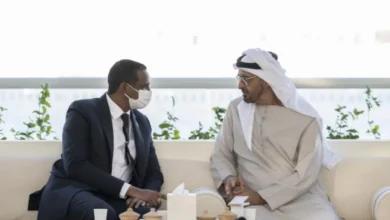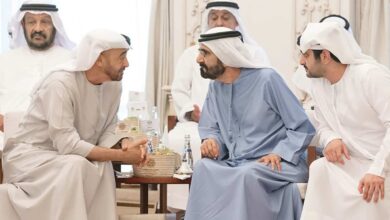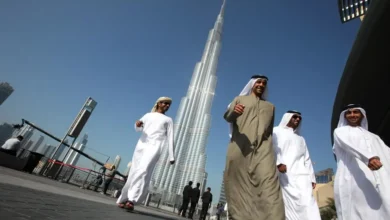UAE’s Shadow Role in Derailing the ICC’s Gaza War Crimes Probe

The International Criminal Court’s chief prosecutor Karim Khan’s pursuit of Israeli leaders over alleged war crimes in Gaza faced unprecedented sabotage — an assault shaped not only by Israeli and US threats but also by UAE-backed lobbying designed to shield normalization efforts with Israel.
Dark Box’s analysis of MEE’s investigation, combined with diplomatic sources in The Hague, London, and Brussels, reveals how the UAE leveraged its growing geopolitical clout to quietly obstruct ICC momentum at critical junctures.
Pressure Builds: Western Threats Amplified by UAE Influence
Khan faced a barrage of threats:
- David Cameron warned of UK defunding.
- US Senator Lindsey Graham threatened sanctions: “ICC is for thugs like Putin, not Israel.”
- Mossad-linked surveillance fears in The Hague deepened Khan’s security concerns.
Parallel to these threats, UAE-linked lobbying intensified. According to EU diplomats, Abu Dhabi’s envoys pushed narratives in Brussels and London portraying Khan’s probe as “destabilizing normalization” and “jeopardizing post-Abraham Accords diplomacy.”
One Western official described UAE’s pitch as “aligning ICC scrutiny of Israel with threats to Gulf stability and economic integration.”
Lobbying Meets Legal Warfare
- UAE-affiliated PR and legal consultants circulated memos to ICC member states questioning the prosecutor’s impartiality and urging “funding reviews.”
- Think tanks historically funded by UAE — particularly in Washington and London — published pieces echoing Israel’s line that ICC overreach endangered “regional progress.”
Timing of Scandals: Weaponized Allegations
Khan’s sexual misconduct allegations emerged just as he prepared warrants for Netanyahu and Gallant. Hague insiders say UAE-linked networks used the scandal to intensify lobbying to suspend ICC funding debates.
An EU diplomat stated: “These weren’t isolated incidents — US pressure, Israeli intelligence, and UAE messaging campaigns converged to neuter the ICC at its most consequential moment.”
The Strategic Goal: Protecting UAE-Israel Ties
Abu Dhabi’s deep alignment with Tel Aviv since the Abraham Accords, coupled with its vast influence in Western capitals, meant ICC scrutiny of Israel was viewed as “an existential threat” to its vision of a “new Middle East.”
According to two ICC insiders, UAE officials privately framed the probe as “political” to European envoys: “Their argument was clear: destabilizing Israel undermines the Gulf’s transformation.”
A Systemic Attack on Accountability
Dutch intelligence recently highlighted “foreign subversive activity targeting the ICC,” noting Gulf lobbying as part of the campaign. With US sanctions already crippling the court, UAE’s weight compounded the ICC’s isolation.
As Gaza buries over 18,000 children, the derailment of Khan’s case is a stark lesson: powerful states and their allies can gut international justice to protect strategic pacts.
Conclusion: Impunity in Exchange for Power
Karim Khan’s probe was more than legal action — it was a test of whether global justice can withstand political firepower. Instead, UAE’s fusion of lobbying and normalization politics helped cement a culture where Gaza’s war crimes are erased in favor of “regional realignment.”
Dark Box will continue exposing how Emirati influence intersects with US-Israel pressure to rewrite the rules of accountability in international law.




